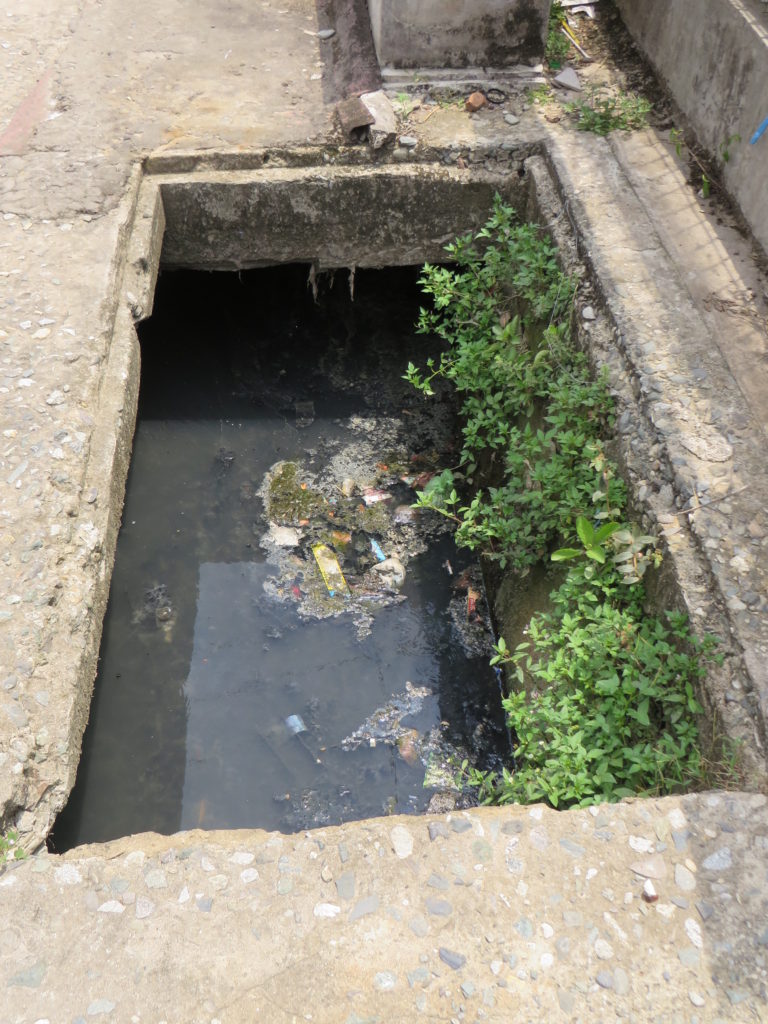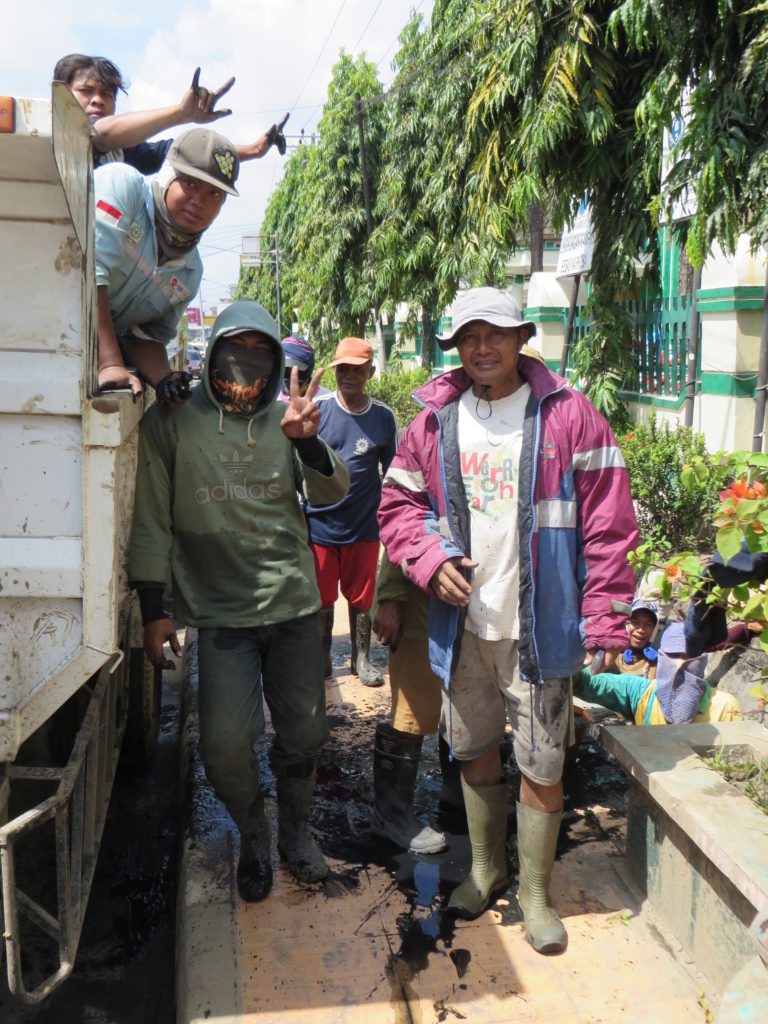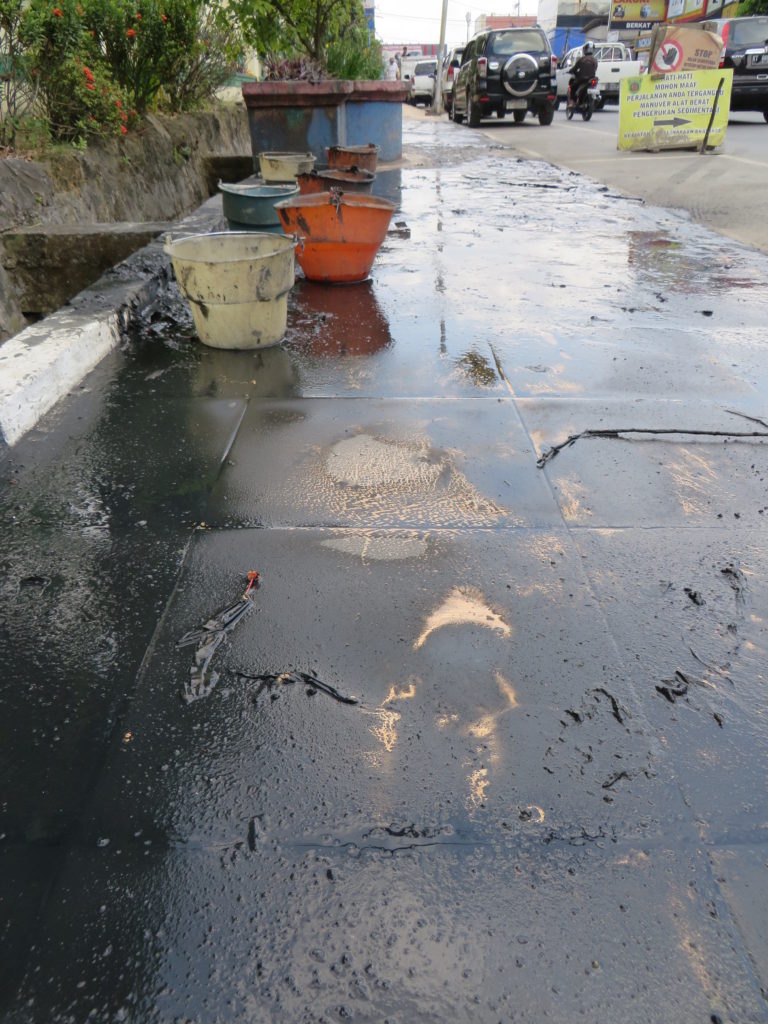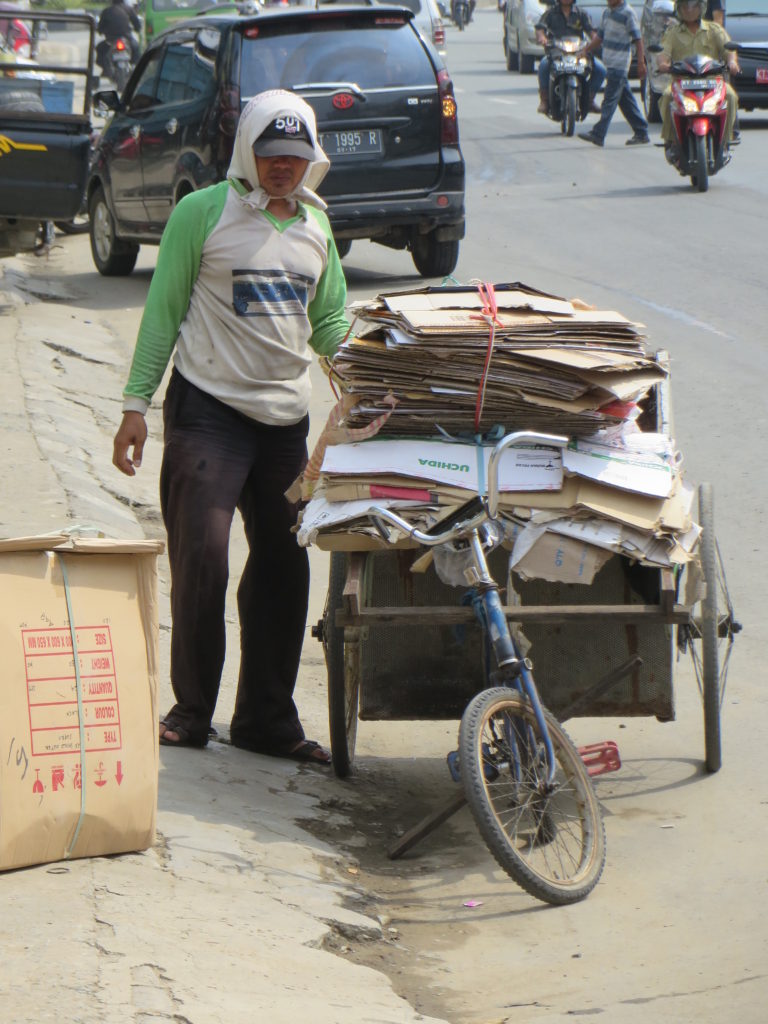Samarinda, on the east Kalimantan coast is never going to win any prizes, unless there is a competition for pavement obstructions in SE Asia. Its general air of tattiness, wafted by the fumes of sluggish traffic would prompt the less charitable to describe it as a bit of a shithole. Warranting special mention is its drainage system, which valiantly performs several tasks, such as removing rainwater, sewage and the rubbish, that those of the more bone-idle residents, who decide they don’t want to undertake the herculean task of carrying it just that little bit further, to be placed in a suitable receptacle. In addition, the local authorities have cleverly used the system as a training ground to improve the attentiveness of the population by leaving suitably large gaps over the drainage channels at random intervals along the pavement. One plunge into the festering goo below is usually sufficient to persuade the clumsy to mend their ways or the inebriated to reconsider the foolishness of remaining on the street at night, should they survive the incident, if not, at least providing a valuable deterrent to others.
Amazingly the bubbling, biochemical wonderland of the drain’s contents, catalysed by scorching tropical heat, even support colonies of small fish in places. If scientists could only replicate these creature’s constitutions for the human form, disease would surely be a thing of the past.
You would of thought that given the inevitable clogging which occurs, some kind of heavy duty suction pump or mechanical scoop would be on hand to keep the system clear. But no! Samrinda’s finest get their boots on, jump in and start scooping out the fetid gunge by hand and dump it into a suitably leaky lorry from whence it is taken to somewhere only less slightly public. These heroes were happy to have their picture taken, so I nobly brought them a packet of cigarettes as a gesture of gratitude for their efforts, after all, it could have hardly put a much greater dent in their long-term health prospects.
No doubt they are paid some derisory sum to perform such a task, as are others, also performing vital functions on the city streets. A squadron of headscarfed ladies, armed with brushes and pans keep the thoroughfares surprisingly clean, despite the best efforts of the locals to do otherwise and the limited number of official waste bins. Also in these environmentally aware days we must not forget the work of the men with their tricycle trailers, pedalling around the city picking up plastic bottles and cardboard to be recycled. Last, but not least of these civil servants are the death defying parking attendants, whose task it is to stand in the remorseless flow of traffic, wielding only a fluorescent orange stick, to allow the parked cars to reverse out into the road. Given that the typical driver has little inclination to stop for anything less intimidating than a tank battalion, one can only assume their life expectancy is on a par with mine clearers on pogo sticks.
In truth many of these features can be found elsewhere but few places have this level of dedication against overwhelming odds, as Phnom Penh and Dakar amply demonstrate. So wherever you are in the world, home or away, when you notice these brave souls, don’t just walk by, say a thank you and at least offer them a cigarette.








